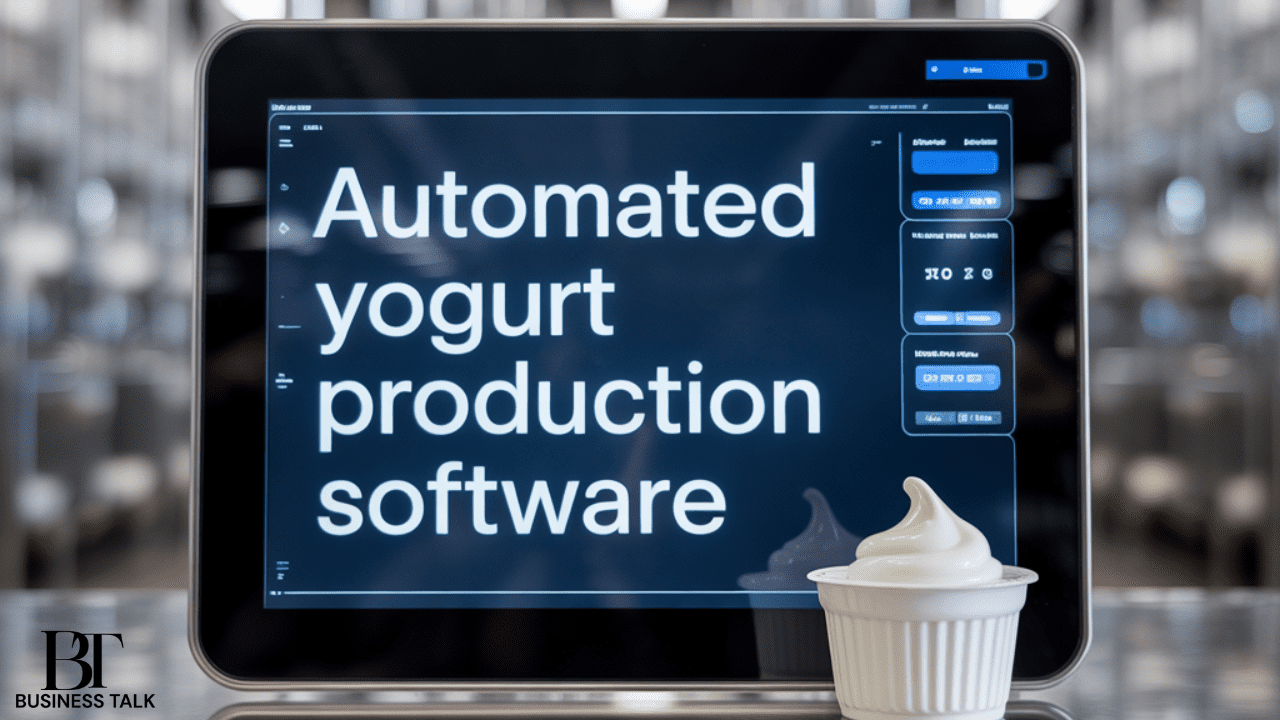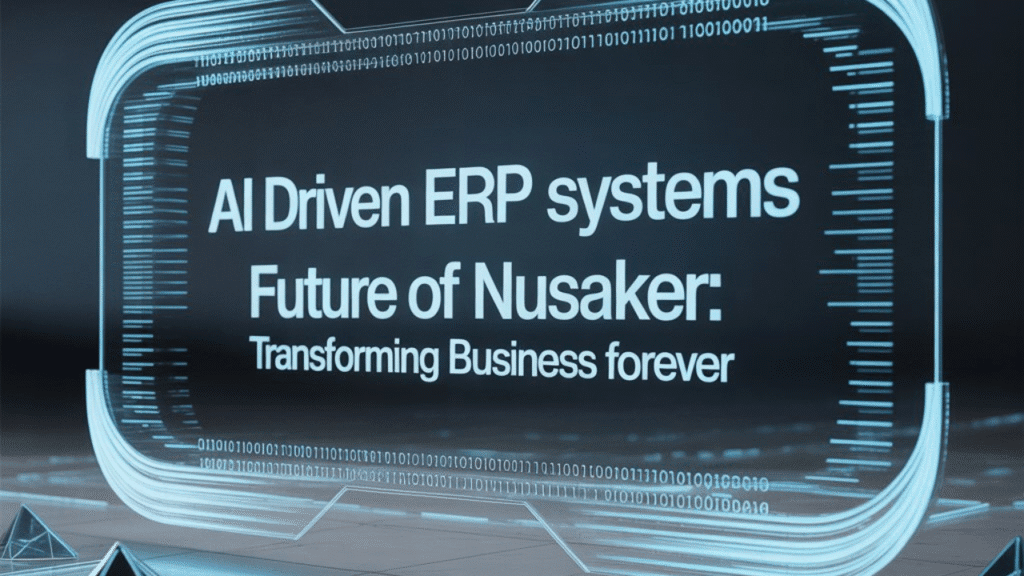In today’s fast-paced food tech world, automated yogurt production software is transforming how dairy manufacturers operate. Once limited by manual methods, modern yogurt production now harnesses digital automation to enhance efficiency, precision, and sustainability.
Across the United States, yogurt consumption continues to rise, especially for Greek and probiotic-rich products. As competition grows, manufacturers turn to automated yogurt production software to optimize processes, cut waste, and ensure consistency. This new digital wave blends traditional craftsmanship with cutting-edge automation — a true game-changer for the dairy industry.
The Rise of Automation in Dairy Processing
Automation in dairy production isn’t new, but it’s evolving rapidly. From milk heating to fermentation and packaging, intelligent automation now governs nearly every step. The technology ensures accuracy, reduces errors, and allows producers to maintain top-notch quality at scale.
A 2024 Journal of Food Engineering study revealed that dairy automation has cut waste by 35% and increased overall efficiency. The message is clear — automation is no longer an option; it’s the foundation of modern food manufacturing.
How Automated Yogurt Production Software Works
Automated yogurt production software integrates the entire production cycle into a centralized digital system. It monitors everything — from milk sourcing to packaging — ensuring that each batch meets exact standards.
Key functionalities include:
- Real-time data tracking of pH, temperature, and fermentation cycles.
- AI-powered quality control that identifies deviations instantly.
- Recipe customization to create new product variations easily.
- Predictive maintenance, preventing downtime and costly repairs.
By analyzing production trends, the software constantly improves itself — learning from every batch to maximize efficiency and minimize waste.
Benefits of Automation in Yogurt Production
1. Consistent Product Quality
Automation eliminates human inconsistencies, ensuring that each batch of yogurt maintains the same flavor, texture, and thickness. Every spoonful mirrors the last, strengthening brand reliability.
2. Operational Efficiency and Cost Reduction
By automating repetitive processes, producers save on labor and accelerate output. Predictive analytics reduce maintenance costs while optimizing production schedules for maximum yield.
3. Sustainability and Resource Optimization
Automation helps minimize raw material waste and reduce energy use — aligning with environmental sustainability goals.
4. Data-Driven Decision Making
Automated systems provide real-time insights into performance and production metrics, allowing managers to make smarter business decisions.
Expert Insight: Technology Meets Dairy Craftsmanship
Dr. Samuel Brooks, a food technology expert from Cornell University, explains:
“The adoption of automated yogurt production software represents a major leap toward data-centric manufacturing. It enables producers to innovate faster while ensuring quality remains uncompromised.”
His words perfectly summarize how automation amplifies human expertise rather than replacing it — empowering dairy producers to create better products with precision and creativity.
Applications Across Yogurt Varieties
The flexibility of automated yogurt production software makes it suitable for multiple product types — from Greek yogurt to vegan alternatives.
- For Greek yogurt, the software fine-tunes the straining process for a thick, protein-rich texture.
- For plant-based yogurt, it handles diverse fermentation needs using almond, oat, or soy bases.
- For probiotic yogurts, it maintains exact conditions for bacterial survival and optimal taste.
Automation ensures that no matter the recipe, the results remain consistent and scalable.
Integration of IoT and AI
By combining IoT (Internet of Things) and AI analytics, automation has become smarter and more responsive. Sensors gather data from every stage, while AI predicts outcomes and adjusts conditions in real time.
If fermentation temperature drops slightly, the system self-corrects instantly, maintaining product quality. Remote cloud access also allows supervisors to monitor production from anywhere — an essential advantage in large-scale dairy plants.
Challenges in Adopting Automation
While the benefits are clear, implementing automation brings certain challenges:
- High setup costs for small producers.
- Training requirements for new system management.
- Cybersecurity concerns due to cloud-based connectivity.
Fortunately, manufacturers can overcome these hurdles through gradual implementation and tailored software models. Modern systems are scalable and adaptable for producers of any size.
Case Study: U.S. Dairy Success with Automation
A Wisconsin-based dairy company implemented automated yogurt production software in 2024 to optimize its Greek yogurt operations.
Results within six months:
- 28% faster production cycles
- 15% lower energy usage
- Zero quality-related recalls
This example demonstrates that automation isn’t just about speed — it’s about reliability, sustainability, and trust.
Meeting Market Demands Through Automation
U.S. consumers demand high-protein, clean-label, and sustainable dairy options. Automation enables producers to adapt recipes rapidly, ensuring compliance with FDA safety standards and evolving dietary trends.
Digital tracking also provides complete product traceability, which builds consumer confidence and brand integrity in competitive markets.
E-E-A-T Principles and the Future of Smart Manufacturing
In line with Google’s E-E-A-T framework — Experience, Expertise, Authoritativeness, and Trustworthiness — automation represents a powerful example of innovation rooted in expertise.
By using automated yogurt production software, companies demonstrate technical mastery, operational transparency, and a strong commitment to product safety — all core elements of E-E-A-T.
Conclusion: The Future Belongs to Automation
As the dairy industry embraces digitization, automated yogurt production software stands as the key driver of transformation. It enhances efficiency, consistency, and sustainability while empowering professionals to focus on innovation and quality improvement.
As Dr. Brooks said, “Automation doesn’t replace expertise — it empowers it.”
For dairy manufacturers across the United States, adopting automated yogurt production software is more than a tech upgrade — it’s a strategic step toward sustainable success in the modern food economy.






Pingback: Coole Jungs Frisuren 2024: Trends und Styling - FASHIONABLE STYLE
Pingback: Can You Watch Netflix on Apple CarPlay? 10 Shocking Facts You Must Know!